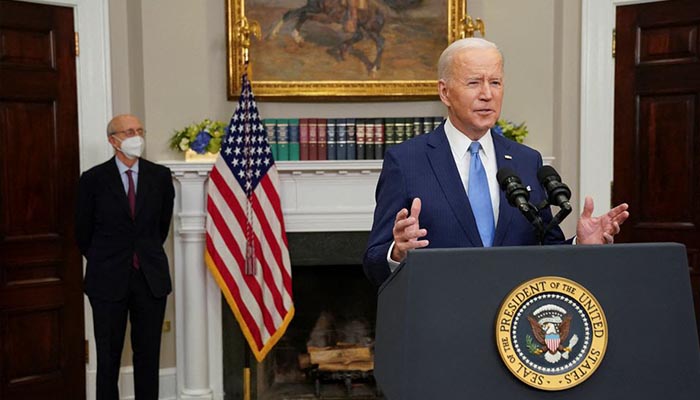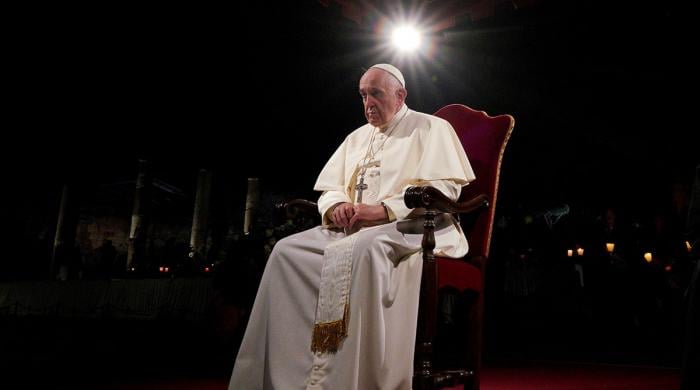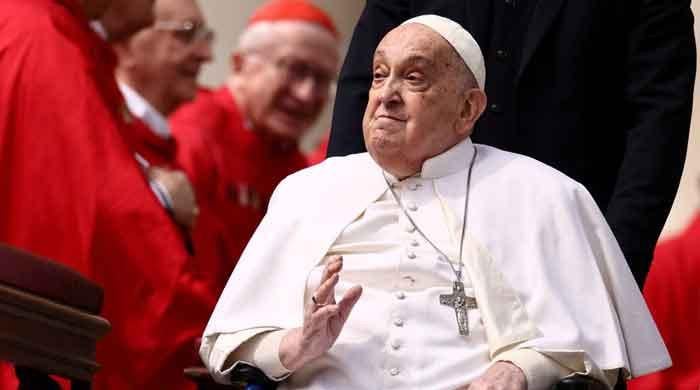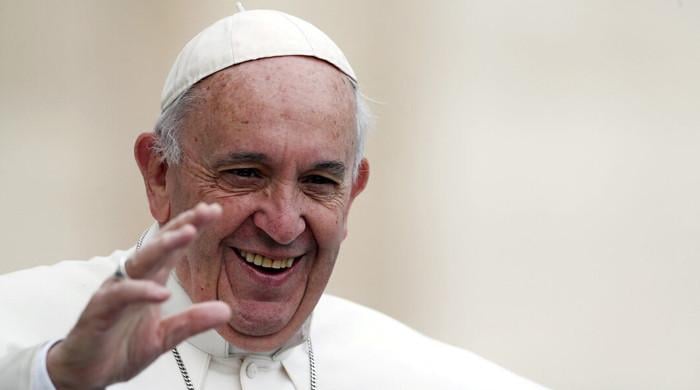Biden vows to name Black woman to US Supreme Court by end of February
Biden calls his intention to nominate a Black woman "long overdue"
January 27, 2022

- Joe biden plans to name a replacement for retiring Supreme Court Justice Stephen Breyer.
- He calls his intention to nominate a Black woman "long overdue."
- Naming a Black woman to the high court was a campaign promise made by Biden.
President Joe Biden on Thursday said he plans to name a replacement for retiring Supreme Court Justice Stephen Breyer by the end of February and reiterated his intention to nominate a Black woman for the first time to serve on the highest US judicial body — a milestone he called "long overdue."
Breyer, 83, formally announced his retirement in a letter to Biden made public on Thursday, saying he plans to depart at the conclusion of the Supreme Court's current term, typically at the end of June, assuming his successor has been confirmed by the Senate. Lawmakers disclosed his retirement on Wednesday.
"Our process is going to be rigorous. I will select a nominee worthy of Justice Breyer's legacy of excellence and decency," Biden said during a White House appearance alongside Breyer.
"I've made no decision except one - the person I will nominate will be someone with extraordinary qualifications, character, experience and integrity, and that person will be the first Black woman ever nominated to the United States Supreme Court. It's long overdue in my view."
Naming a Black woman to the high court was a campaign promise made by Biden.
His retirement after 27 years gives Biden his first chance to fill a vacancy on the nine-member court but will not change its ideological balance. The court's 6-3 conservative majority has shown an increasing
willingness to reshape the law on contentious issues including abortion and gun rights. Biden's Republican predecessor Donald Trump appointed three justices during his single four-year term in office.
Breyer spoke at the White House event of the importance of a diverse nation like the United States resolving its deep divisions by adhering to the rule of law.
"People have come to accept this Constitution and they have come to accept the importance of the rule of law," Breyer said, holding a copy of the 18th century foundational document in his hand.
Democrats, who hold a razor-thin Senate majority, aim to quickly confirm Biden's pick in a time frame similar to the one-month process that the chamber's top Republican, Mitch McConnell, used in 2020 to confirm Trump's third appointee, Amy Coney Barrett, according to a source familiar with the planning.
Republicans are seeking to regain control of the Senate in the Nov. 8 congressional elections, underscoring the need for speed from the perspective of Biden's party. McConnell has indicated he would block any Biden nominations to the court if his party regains the Senate majority.
Biden effusively praised Breyer.
"This is a bittersweet day for me," Biden said, noting that he has known Breyer since the 1970s.
"I'm here today to express a nation's gratitude to Justice Stephen Breyer for his remarkable career in public service," Biden added.
"I think he is a model public servant at a time of great division in this country," Biden added, saying: "His brilliance, his values, his scholarship, are why Judge Breyer became Justice Breyer."
Potential Biden nominees include Ketanji Brown Jackson, a former Breyer law clerk who was confirmed by the Senate last June to serve on an influential US appellate court, and Leondra Kruger, who serves on the California Supreme Court. Another potential contender is Michelle Childs, a federal district court judge in South Carolina who Biden already has nominated to the US appeals court in Washington.
Breyer, the Supreme Court's oldest member, was appointed to his lifetime post by Democratic President Bill Clinton. He authored important rulings upholding abortion rights and healthcare access, helped advance LGBT rights and questioned the constitutionality of the death penalty. He often found himself in dissent on a court that has moved ever rightward.
Democratic lawmakers and liberal activists on Wednesday praised the jurist's decision to step aside, allowing Biden to install a younger member who could serve for decades in the lifetime post.
For some activists, the decision came as a relief as they had publicly urged Breyer to depart while the Democrats control the Senate, concerned that if he did not do so, Republicans could block confirmation of his successor or a future Republican president could be able to name his replacement. That scenario would result in a 7-2 conservative majority.











